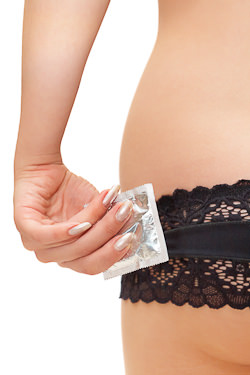 Often I come across things out on the web that are simply the best information I've seen. I'd been wanting to collect data into a great safer sex guide for quite some time and then the Authoritative Guide to Safer Sex was pointed out to me from the good folks over at Online Dating University. Rather than attempt to do my own and pale in comparison, I present the opening paragraphs below and then take you right into their guide.
Often I come across things out on the web that are simply the best information I've seen. I'd been wanting to collect data into a great safer sex guide for quite some time and then the Authoritative Guide to Safer Sex was pointed out to me from the good folks over at Online Dating University. Rather than attempt to do my own and pale in comparison, I present the opening paragraphs below and then take you right into their guide.
We here at Online Dating are thrilled to welcome you to “The Authoritative Guide to Safer Sex.” As anyone sexually experienced will tell you, healthy sex lives depend upon confidence and security. So it should come as no surprise that we firmly believe safer sex means smarter sex. It’s the very stance that motivated us to make this guide in the first place.
It is also worth mentioning that we’ve designed this guide with flexibility in mind. If you are looking for info on specific questions, you can always hop to the topic of your choice. But anyone looking for the complete overview will be better off experiencing the parts in succession. Remember, there’s always room to build on your working knowledge of safer sex; it’s a key part of personal and social responsibility. So read up and take charge of your sex life!


4 Comments
Cooper, how common is using some form of oral protection in established swinging circles? My wife and are are just getting into swinging. Every kind of safer sex guide always insists on condoms and dental dams for oral. But everything I find about the lifestyle indicates that most people don’t worry about this. What are your thoughts about this?
Well, my thoughts are that we all SHOULD use barriers for all forms of penetration (oral, digital, genital), but do we? No. Do swingers in general, no, not really…certainly not noticeably. The fact that as a community in general there isn’t prevalent use of barriers for oral and digital play seems to me to indicate that it just doesn’t transmit as easily as we all fear. HOWEVER, it also indicates the ability to transmit. So here comes the question. There’s a teensy risk involved statistically, that may make you feel better about going sans barrier, but if you’re part of that small transmission, wouldn’t you wish you had used the barrier? This is where I’ve gotten recently. I’m more involved in my discussion about safer sex practices, and more vigilant about using barriers with new people and people in “less safe” locales (club/bar/resort) as my “acceptable risk” profile has changed. But what that acceptable risk is to you is so very important.
Thanks for the followup Cooper. I’ve been trying to process my feelings about this by thinking about the risk assessment I make in other parts of my life. The most dangerous thing most of us do every single day is drive. We make all sorts of calculated, and often uncalculated/unconsidered, risks all the time. And both my wife and I admit that in our single/dating years, neither of us used any kind of protection for oral/digit sex. Seems almost odd to worry about that now, but we are also now worrying about each other’s health, not just our own individually.
Humans are also typically terrible about making good risk assessment judgements and have problems turning abstract numbers into something that has some meaning or impact on our lives.
Indeed. For instance driving is far less safe than your cancer risk from HPV due to unprotected oral sex.